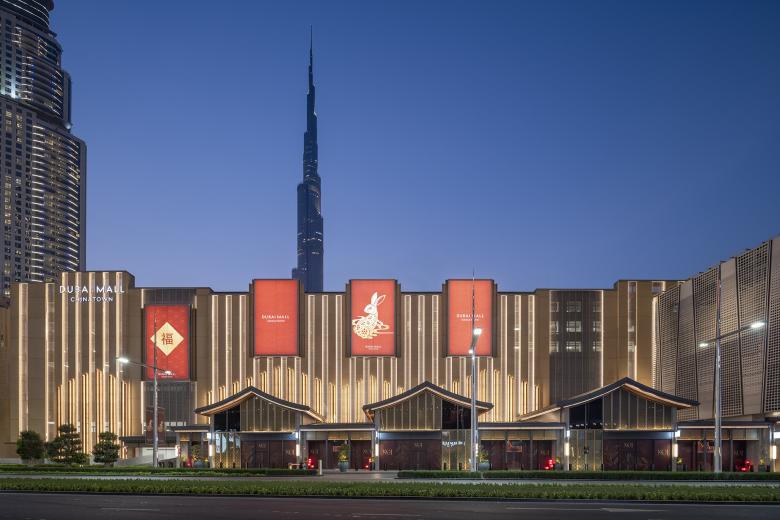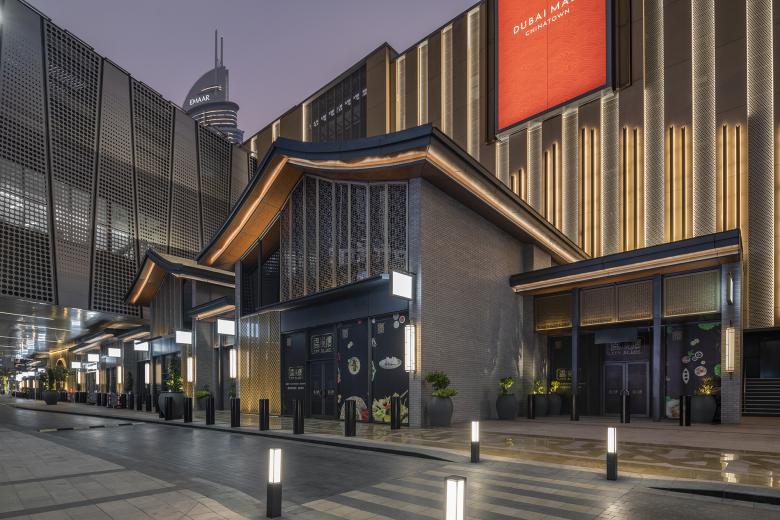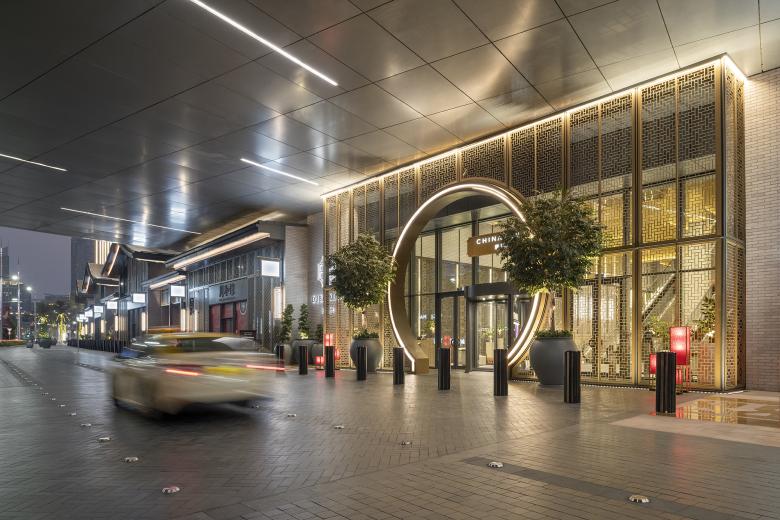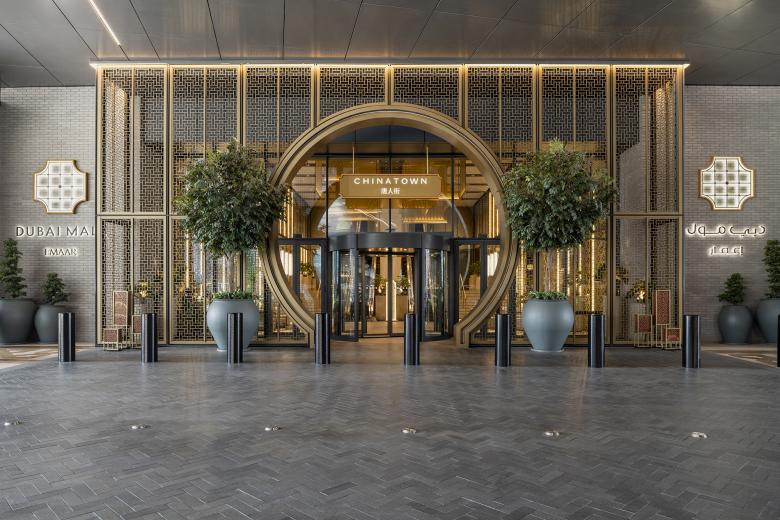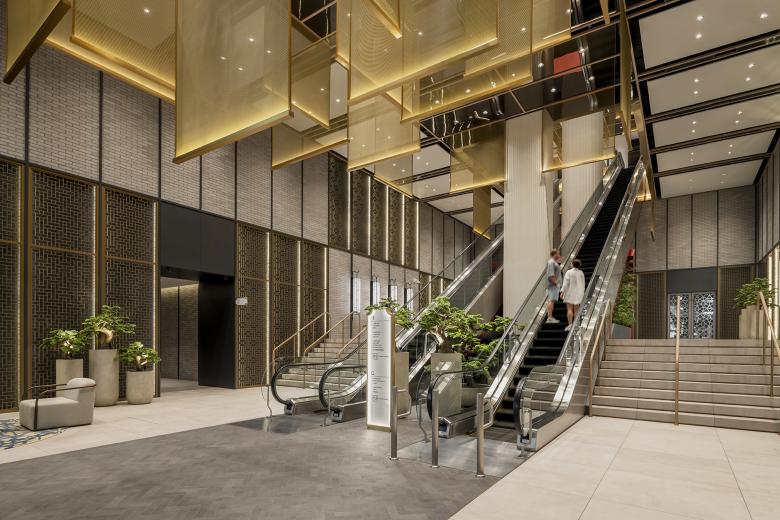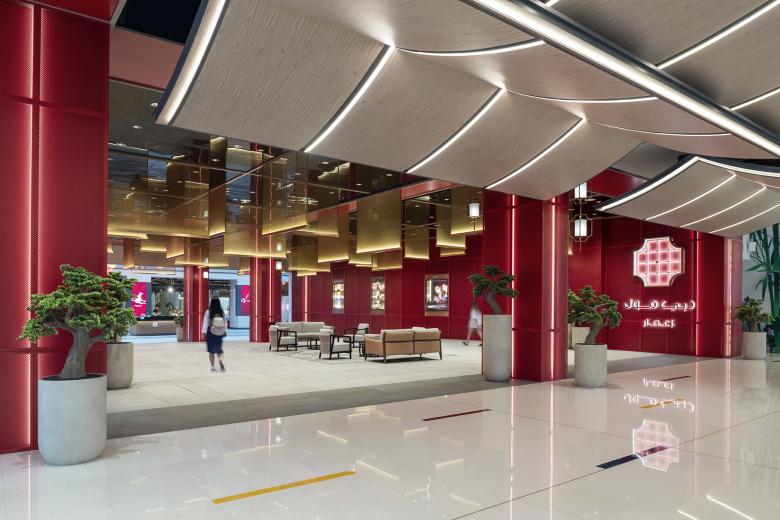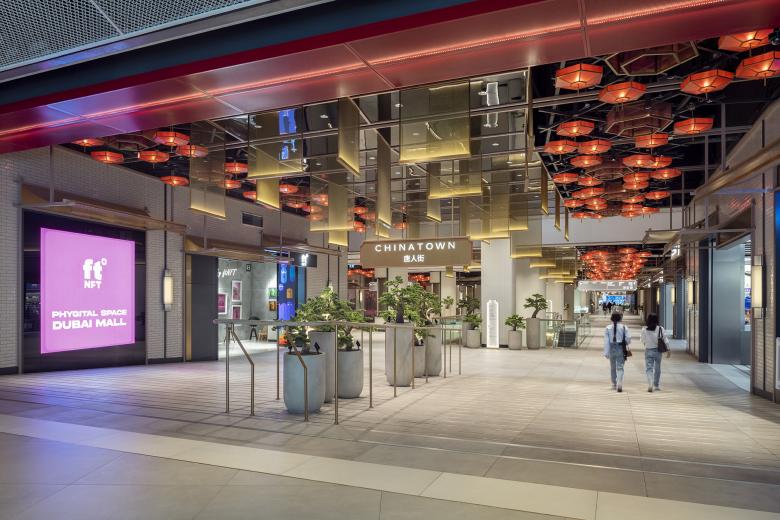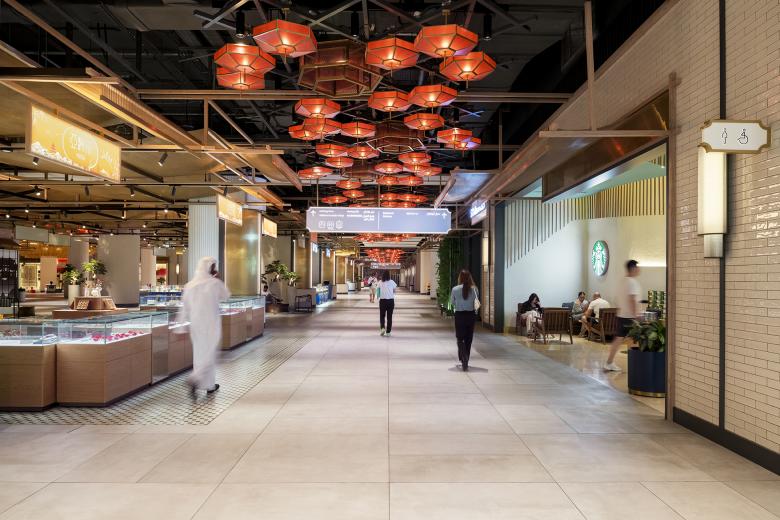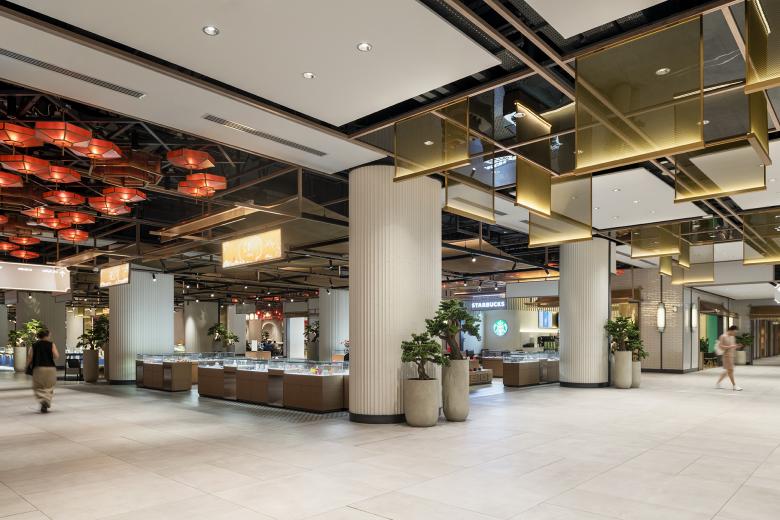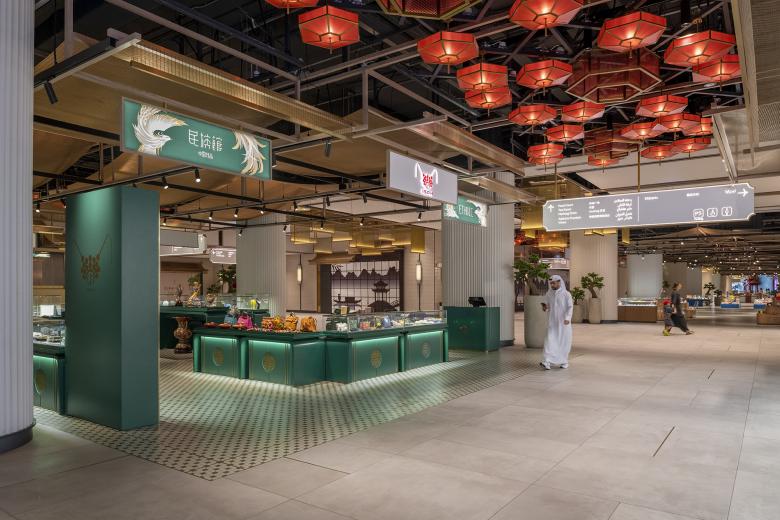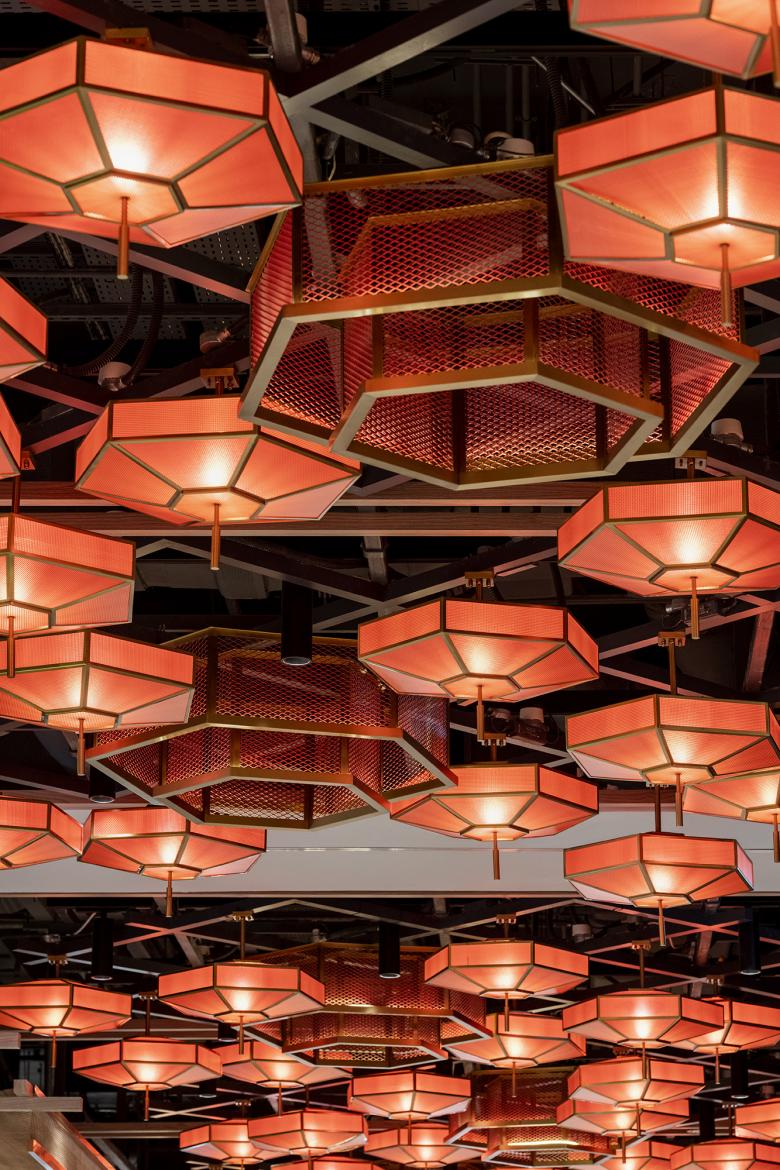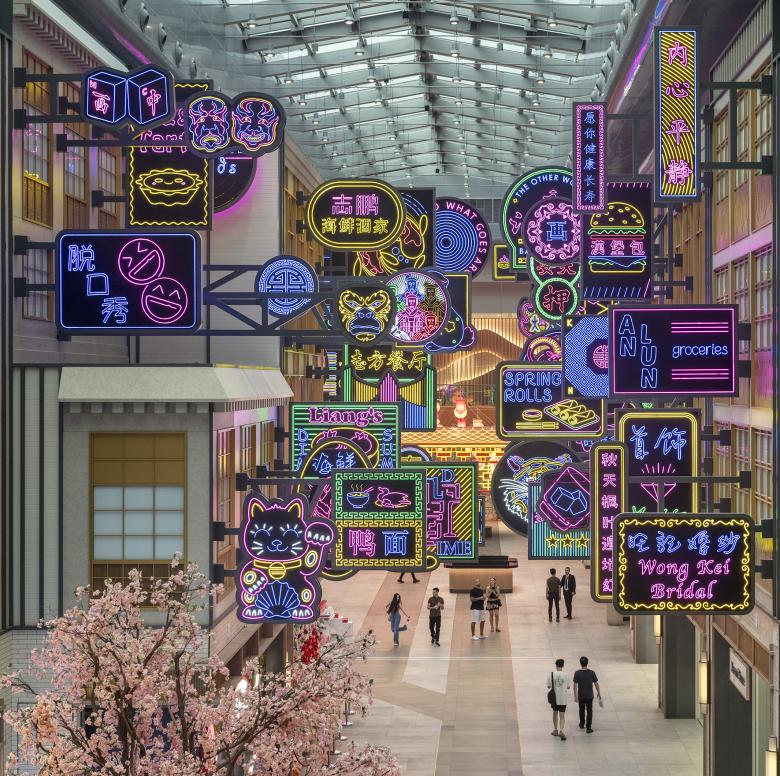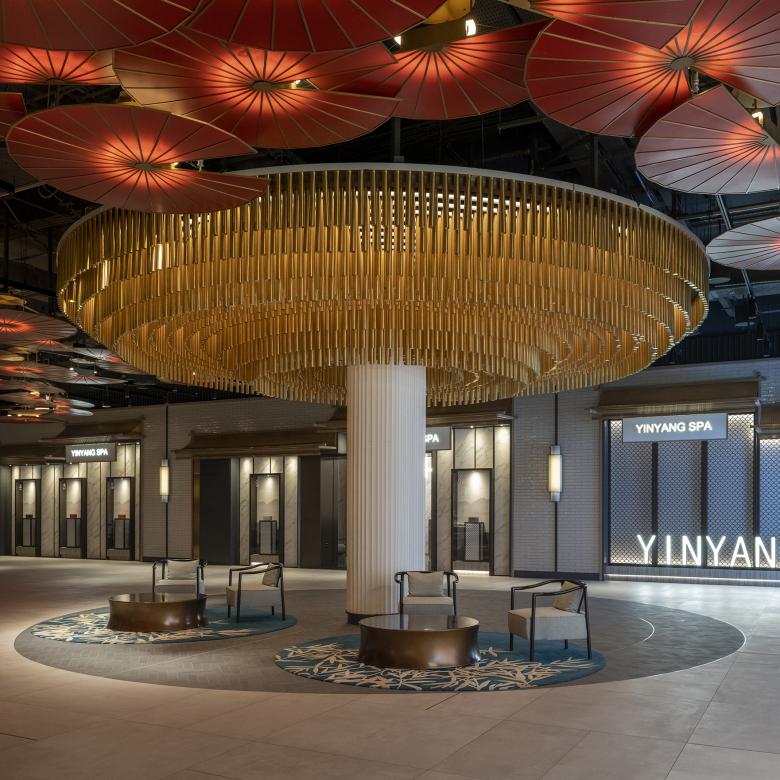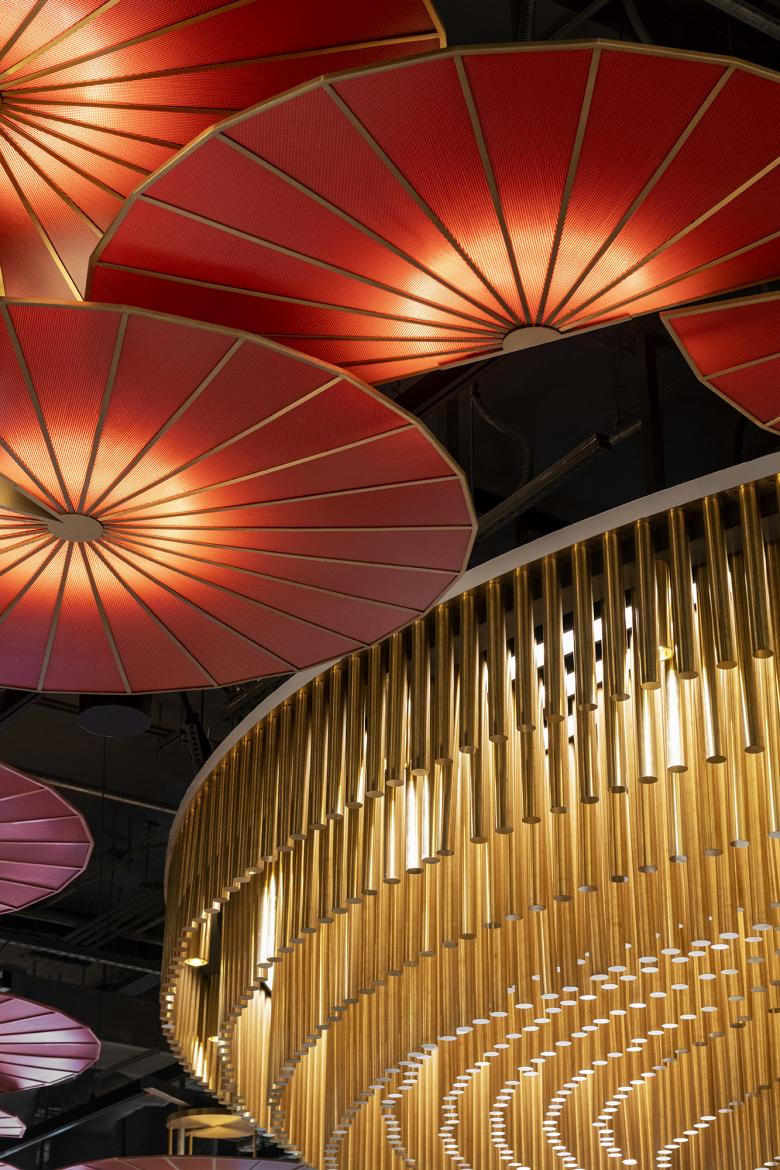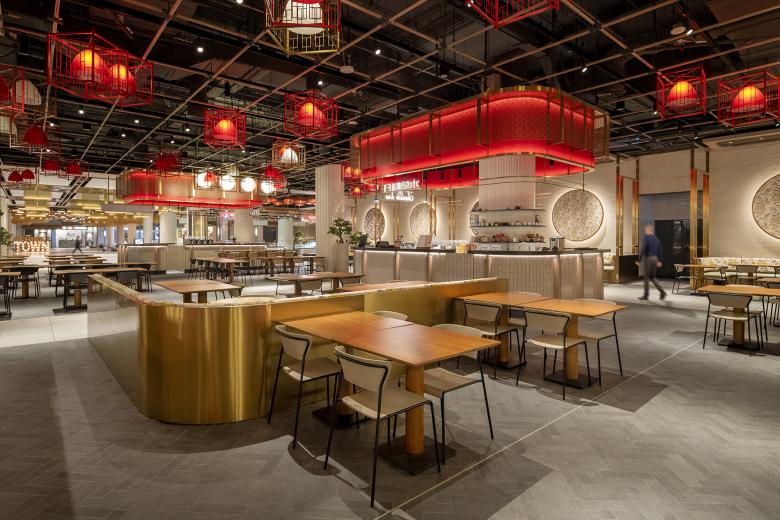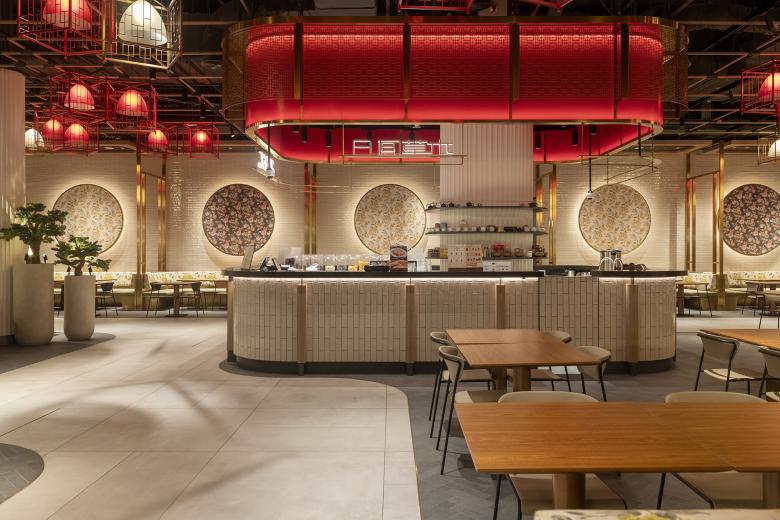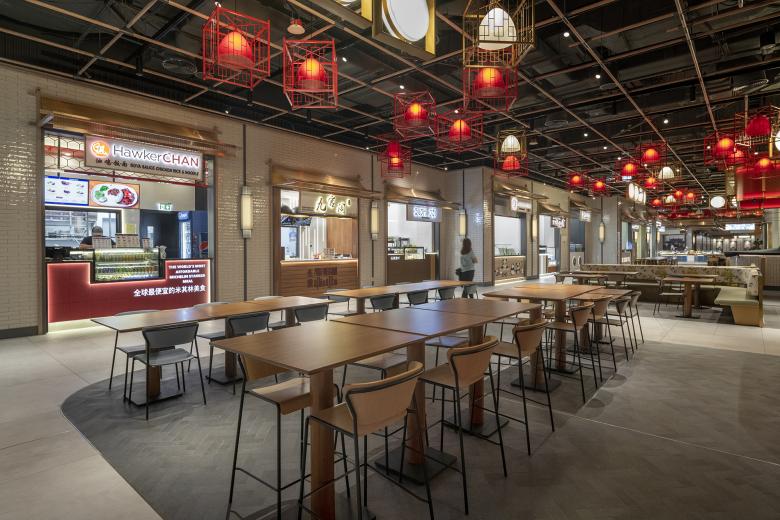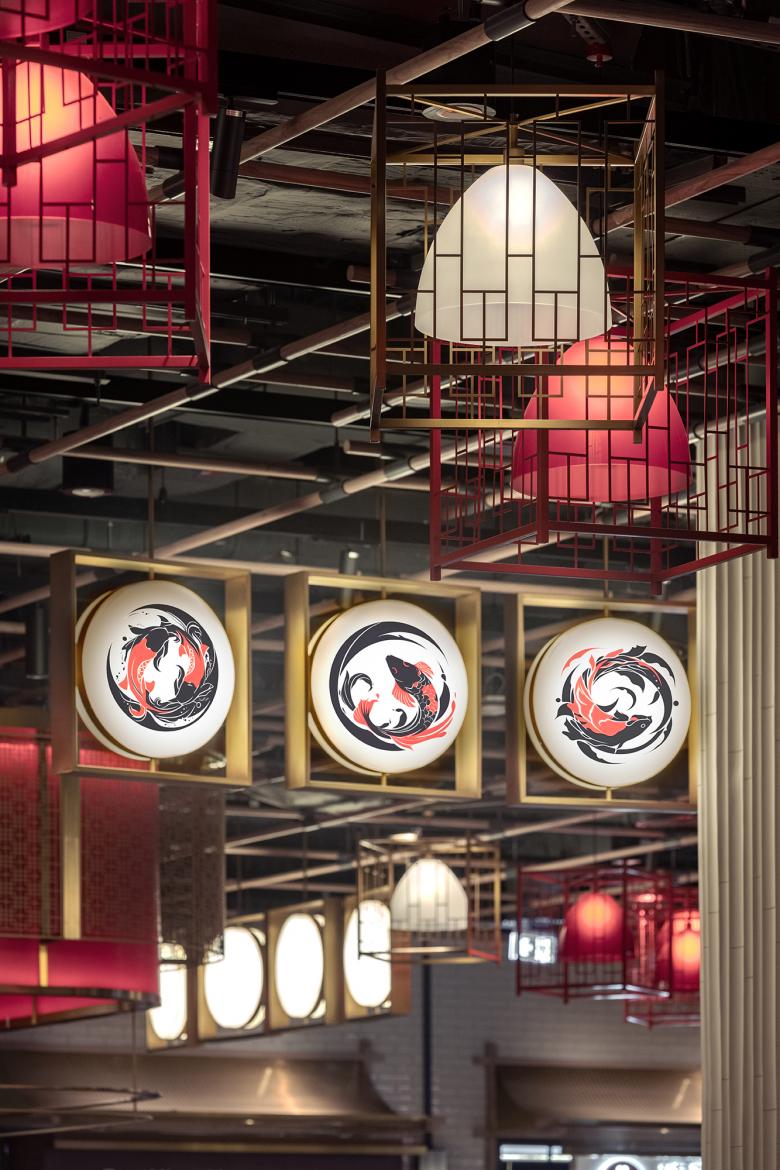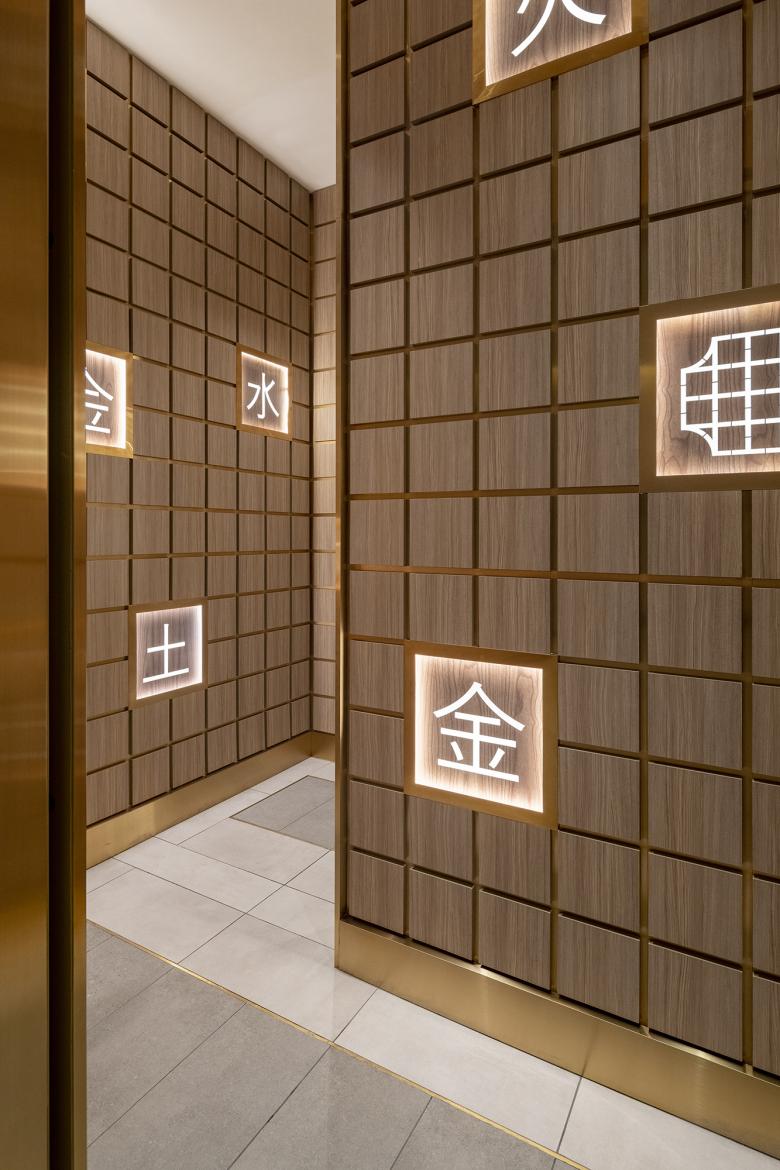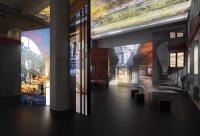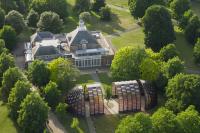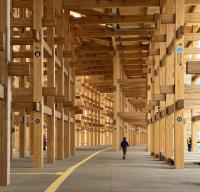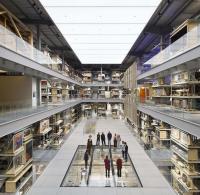Dubai Mall Chinatown
Dubai, United Arab Emirates
Boasting an aquarium, cinemas, and even a dinosaur fossil, the Dubai Mall is nothing if not larger-than-life. Fittingly, for the mall’s newest extension Kokaistudios amplified key visual identifiers of Far East Asian culture – including fans, lanterns, and lattice – for an alternative take on traditional Chinatowns.
——————————————————————————
Located inside Dubai’s biggest shopping mall, Chinatown lays the foundations for a cultural bridge between the UAE city’s locals and visitors, and China’s multifaceted history and traditions. A new lifestyle destination for shopping, relaxation and F&B promising to bring an Asian experience, the 15,000 sqm commercial space is conceived as a contemporary take on traditional Chinatowns, and as a place of discovery.
Two entrances connect the Chinatown development to the Dubai Mall and street respectively. Evocative of the sloped tiled roofs of a traditional village, the external facade is dominated by a moon gate: a circular entrance passage typically found in classical Chinese gardens, here it is imagined as a literal gateway to Chinese culture. Surrounded by brass metal lattice, the gate creates an aesthetic that recalls high-end hospitality venues and leads to an escalator, taking visitors direct to the mall’s upper floor.
Figuratively transporting visitors to the Middle Kingdom are four thematic areas that collectively construct a narrative of China. The first is “Lantern Street”, the commercial space’s main thoroughfare and festooned with contemporary versions of the traditional Chinese light. Thousands of hexagonal red lanterns hang high above open shop fronts, while metal mesh awnings, mortice and tenon wood structure and a system of different-sized floor tiles recall a Chinese street market.
Elsewhere, the traditional garden-inspired wellness themed space “Tea Room Garden” is composed of both central island shops and surrounding stores, alluding to the careful balance of plants and herbs found in traditional Chinese medicine. Open-plan concessions selling health and beauty products, therapeutic tea, as well as areas for rejuvenating spa treatments create a calm relaxing atmosphere – not to mention soothing aromas. The structural columns of the central shops are designed as stylized brass willow trees, and custom-made oversized red fans float in between, nodding to Chinese culture and making for a dramatic canopy.
Similarly sensory in approach is the enticing food court “Bird Market”. Overhead custom lighting comprising metal bird cages recall the bird and flower markets of Chinese cities, while bamboo-imprinted pillars of light GLC concrete nod to China’s emblematic flora. The space offers visitors an array of East Asian cuisines, served from metal latticed stands and surrounded by courtyard-style tiled floors. The guests are welcome on seats and banquettes decorated by Chinese floral fabrics.
A fourth thematic area strikes a thoroughly contemporary tone and takes inspiration from China’s dense metropolises such as Hong Kong and Shanghai. “Neon City” is a three-storey atrium with skylight, lined with signs advertising eateries, cafes, and bars, as well as LED screens depicting animals of the Chinese zodiac. The multidimensional light show installation, designed by Jason Bruges Studio, is already a proving a captivating centerpiece among visitors, and a social media favorite.
Unlike the traditional Chinatowns in the popular imagination – for example, enclaves in London, New York, and San Francisco – China Gate responds both to its specific mall context, and the global travel hub of Dubai. To that end, the space makes playful use of instantly recognizable visual tropes of China, such as fans, lanterns, and the color red. These identifiers convey a pop-infused, international vision of China, creating an exciting destination for visitors to discover everything from the country’s newest brands to its age-old traditions.
Project Information
Project Name: Dubai Mall Chinatown
Location: Dubai, UAE
Client: Emaar Properties
General Project Management Company: WSP (Middle East)
Opening Time: Sep. 23, 2023
Service Scope: architectual facade renovation+interior design
Interior Design Area: 9100sqm
Design Company: Kokaistudios
Chief Designers: Andrea Destefanis, Filippo Gabbiani
Design Director: Pietro Peyron
Design Team:
Interior: Suzy Zhang, Alex Jiang, Chang Qing, Kim Jin, Sila Beste Tekin
Architecture: Andrea Antonucci, Lu Tian, Zhu Wenye, Zheng Fei
FF&E: Winnie Chen, Rao Lingshan
Lighting Design: Inverse Lighting
Lighting Show Design: Jason Bruges Studio
Signage & Graphic Design Concept: Spectra
Text: Frances Arnold
Photography: Anique Ahmed
Media Contact: Jacqueline Chiang
Email: jacqueline@kokaistudios.com
